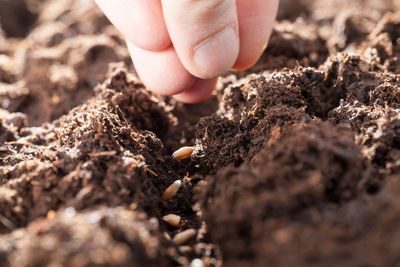About South Central Fall Planting
The U.S. has many gardening regions. What and when to plant for southern winter crops vary but typical fall crops for South Central U.S. include frost-tolerant vegetables such as:
Beets
Broccoli
Brussels sprouts
Cabbage
Carrot
Cauliflower
Chard
Collard
Garlic
Kale
Lettuce
Mustard
Onion
Parsley
Spinach
Turnip
Frost-susceptible vegetables include:
Beans
Cantaloupe
Corn
Cucumber
Eggplant
Okra
Peppers
Irish potato
Sweet potato
Squash
Tomato
Watermelon
Group those together so they can be removed easily after a killing frost. Planting dates vary widely in the South Central region. For example, in Texas’ multiple zones, planting dates range from June to December. For recommended planting dates and vegetable varieties, visit your county extension office or their websites for downloadable garden guides. Timing is crucial in when fall planting in southern states, especially those having a number of growing zones.
South Central Gardening Tips
Seed germination can be tough in late summer’s dry, hot soil, so transplants could be a better option to get a jump on the season. If you plan to direct seed, try planting them in soil arranged in furrows. Drop the seeds in the furrow and cover lightly with soil. The higher soil on each side will provide some shade to the seeds and protection from drying wind. Or plant seeds in trays indoors about a month ahead of planting time. Allow the seedlings to harden off by moving them outside into a shady area first, for about a week. Then move them to the desired sunny location. Make sure the planting site receives full sun, six to eight hours a day, and well-drained soil enriched with amendments. Fertilize with cow or horse manure or commercial fertilizer such as 10-20-10. Plenty of water should be available when rain is not enough. A drip irrigation system provides water right where it is needed and reduces wasteful runoff. Young plants can scorch in late summer’s sun, so it may be necessary to cover the plants with screening for afternoon shade protection. Mulch can also cool the soil and prevent excessive water evaporation. Your efforts will be rewarded with fresh vegetables throughout fall and into the winter.
